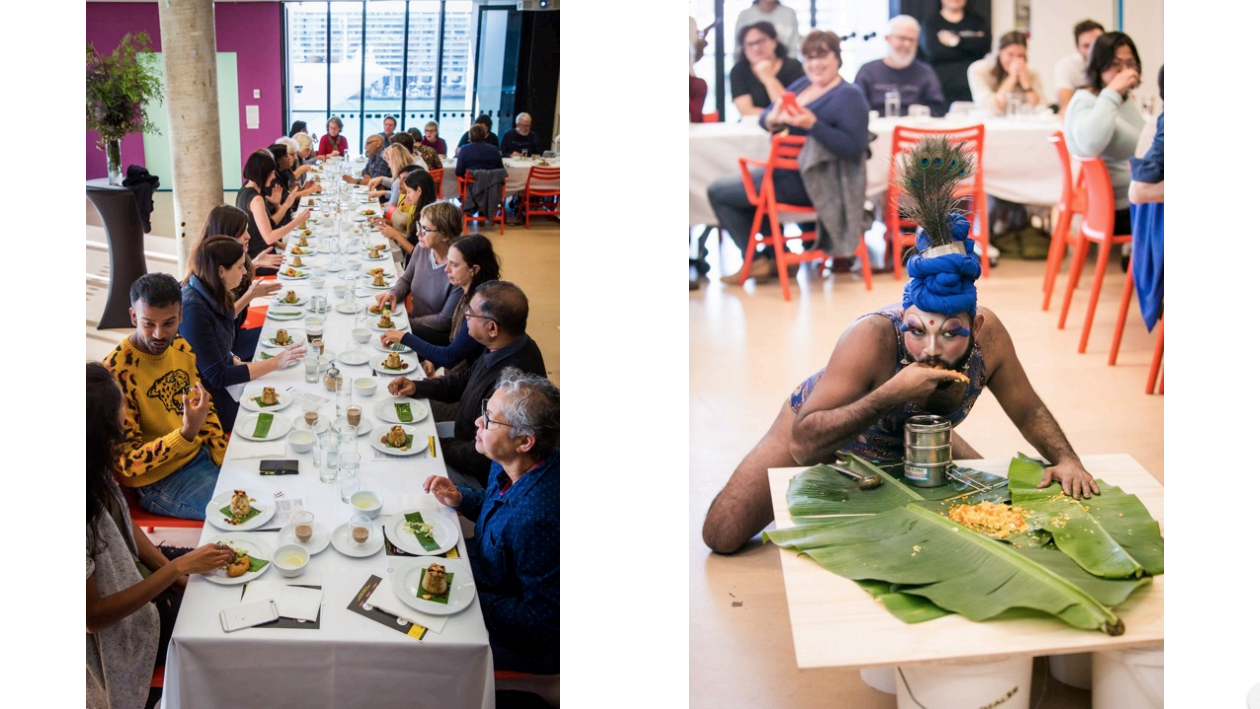Boraching difficult conversations through Arts
With Gill Nicol Museum of Contemporary Art Australia
CHALLENGE
The Museum of Contemporary Art (MCA) is a champion for dialogue, promoting a belief in the power of conversation for change, empathy and empowerment. The Museum has seen how approaching the tricker subjects in our world can lead to exciting and wonderful things – but also to difficult and problematic realisations.
ACTION
Conversation Starters
Focusing on drawing in diverse audiences to the Museum, the MCA launched a suite of programmes as part of Conversation Starters: a two-day festival using contemporary art as the starting point in real-life conversations for audiences of all ages. Inspired by key themes in exhibitions such as power and post-truth, it aims to create a space for difficult ideas and questions to be explored both individually and collaboratively. The Handfed breakfast, led by a belly dancer and a drag queen, was equal parts learning to eat by hand and discussing difference in cultural practice. Weaving workshops doubled as storytelling opportunities. A conversation wall used taboo questions to gather anonymous responses for public reflection.
Riding on the high of its initial success, it was not immediately clear why the second edition of Conversation Starters didn’t do so well. Upon review it was clear that its misstep was to put the crowds before the art – in other words, it had strayed that little bit too far from the organisation’s mission.
Learning from failure
When the MCA commissioned a new work in response to Kader Attia’s Ghost, it did not expect the resulting piece to spark controversy. Despite having passed before the eyes of a number of staff at the Museum, the problematic nature of an image – not intended to be blackface, but perceived as such – was not recognised until a backlash came through from Indigenous audiences via social media. The work was withdrawn by the artist, an apology statement released and a dialogue panel held in place of the artwork, but ultimately those it had affected had already said their piece on social media. This prompted MCA staff to take a hard look at internal processes to understand the white privilege and unconscious biases we all hold. It stands as a powerful lesson for those working with ideas, beliefs and values in the public sphere: taboo is a fine line to tread.
KEY LEARNINGS
There is a balance to strike in prioritising art and audiences – each project should be checked for mission and ethical coherency. Practice what you preach – be authentic and transparent, acknowledge your failures.
Art is political – concepts out of context can take on all new powers (for good and bad).

